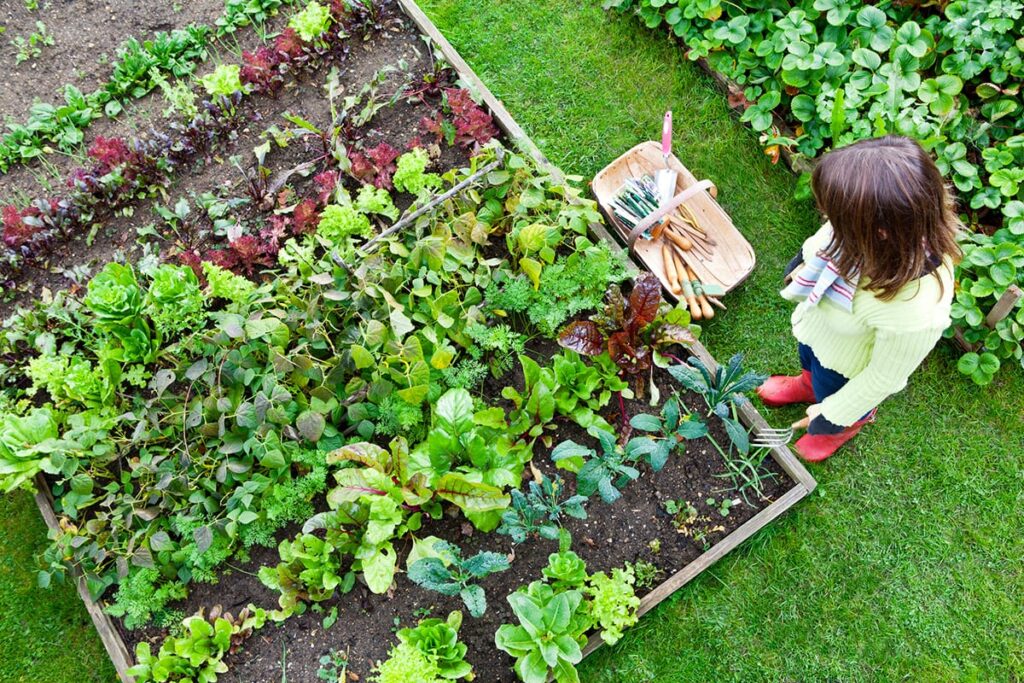
Vegetable Gardening for Beginners
Growing your own vegetables is both fun and rewarding. All you really need to get started is some decent soil and a few plants. But to be a really successful vegetable gardener — and to do it organically — you’ll need to understand what it takes to keep your plants healthy and vigorous. Here are the basics.
“Feed the soil” is like a mantra for organic gardeners, and with good reason. In conventional chemical agriculture, crop plants are indeed “fed” directly using synthetic fertilizers.
When taken to extremes, this kind of chemical force-feeding can gradually impoverish the soil. And turn it from a rich entity teeming with microorganisms insects and other life forms, into an inert growing medium that exists mainly to anchor the plants’ roots, and that provides little or no nutrition in its own right.
Although various fertilizers and mineral nutrients (agricultural lime, rock phosphate, greensand, etc.) should be added periodically to the organic garden, by far the most useful substance for building and maintaining a healthy, well-balanced soil is organic matter.You can add organic matter to your soil many different ways, such as compost, shredded leaves, animal manures or cover crops.
Organic matter improves the fertility, the structure and the tilth of all kinds of soils. In particular, organic matter provides a continuous source of nitrogen and other nutrients that plants need to grow. It also provides a rich food source for soil microbes. As organisms in the soil carry out the processes of decay and decomposition, they make these nutrients available to plants. For more on this subject, read Building Healthy Soil.
Make Efficient Use of Space
The location of your garden (the amount of sunlight it receives, proximity to a source of water, and protection from frost and wind) is important. Yet just as crucial for growing vegetables is making the most of your garden space.
Lots of people dream of having a huge vegetable garden, a sprawling site that will be big enough to grow everything they want, including space-hungry crops, such as corn, dried beans, pumpkins and winter squash, melons, cucumbers and watermelons. If you have the room and, even more importantly, the time and energy needed to grow a huge garden well, go for it. But vegetable gardens that make efficient use of growing space are much easier to care for, whether you’re talking about a few containers on the patio or a 50-by-100-foot plot in the backyard. Raised beds are a good choice for beginners because they make the garden more manageable.